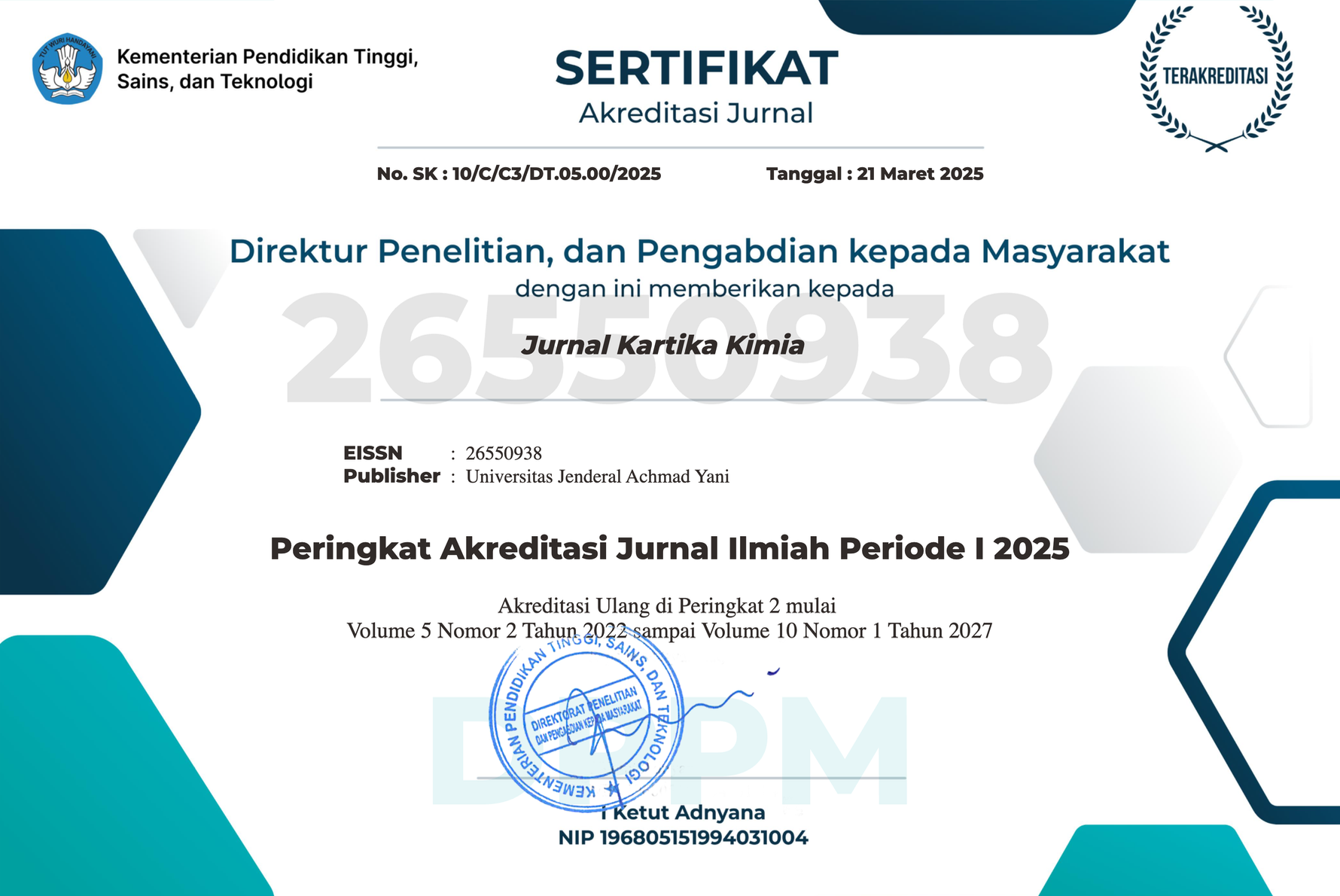Molecular Docking Studies of Phoenix dactylifera L. Against SARS-CoV-2 ACE-2 Receptor
Abstract
Dates (Phoenix dactylifera L.) are one of the most useful plants. According to previous research, those dates contain bioactive compounds with antioxidant, antimicrobial, and anti-inflammatory properties. Furthermore, dates can be used as an antiviral, but the potential of dates as an antiviral, particularly the SARS-CoV-2 antiviral, has received little attention. As a result, the goal of this study was to see if date palm bioactive compounds could be used as SARS-CoV-2 antivirals with molecular docking against the Angiotensin-Converting Enzyme-2 (ACE-2) receptor. The study was carried out using molecular docking methods with Autodock Vina, where 21 chemical compounds found in date palms as ligands were attached to the ACE-2 receptor, and four chemical compounds used as SARS-CoV-2 antiviral medicines, namely chloroquine, favipiravir, plitidepsin, and remdesivir, were used as a control ligand. The results showed that proanthocyanidin B1, B2, and quercetin ligands had the highest interaction and stability with Gibbs free energy values of -9.20 kcal/mol, -9.10 kcal/mol, and -8.20 kcal/mol, respectively. This value is known to be higher than control ligands plitidepsin -9.02 kcal/mol, remdesivir -7.88 kcal/mol, chloroquine -5.65 kcal/mol, and favipiravir -5.38 kcal/mol. As a result, dates can be used as a SARS-CoV-2 antiviral candidate.























